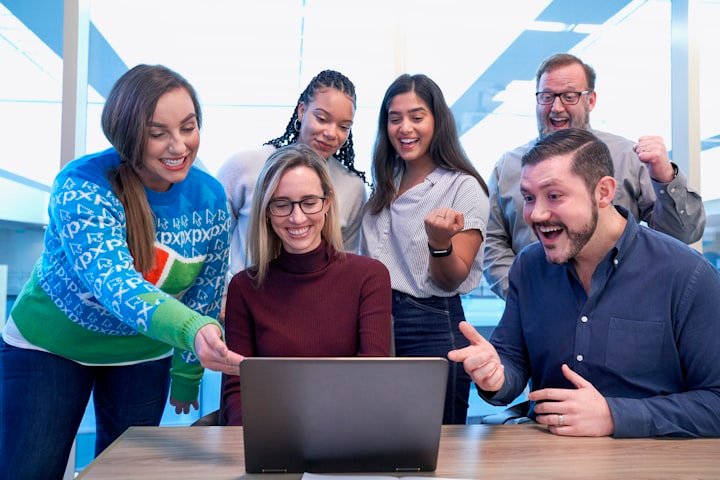Can International Students Work in the USA After Graduation?
For international students looking to study in the United States, understanding the visa options available to them is crucial. The most common visa for international students is the F-1 visa, which allows individuals to study at an accredited U.S. college or university. This visa also allows for optional practical training (OPT) opportunities, which we will explore in more detail in the next section. Another option for international students is the J-1 visa, which is designed for cultural exchange programs and allows for practical training as well. It’s important for international students to carefully consider their visa options and choose the one that best fits their academic and career goals.
In addition to the F-1 and J-1 visas, international students may also consider the M-1 visa for vocational or nonacademic studies, or the H-4 visa for dependents of H-1B visa holders. Each visa option has its own set of requirements and limitations, so it’s important for international students to thoroughly research and understand their options before applying. Working with an experienced immigration advisor can also be helpful in navigating the complex visa process and ensuring that all requirements are met.
Exploring Optional Practical Training (OPT) Opportunities
One of the key benefits of the F-1 visa for international students is the optional practical training (OPT) program, which allows individuals to gain valuable work experience in their field of study. OPT is available to F-1 students before or after completing their academic program, and can be used for up to 12 months. For students in science, technology, engineering, or mathematics (STEM) fields, there is also a 24-month extension available for OPT. This program provides international students with the opportunity to apply their academic knowledge in a real-world setting and gain valuable skills that can enhance their future career prospects.
In order to participate in OPT, international students must apply for employment authorization with the U.S. Citizenship and Immigration Services (USCIS). It’s important for students to carefully follow the application process and ensure that all required documents are submitted in a timely manner. Additionally, international students should work closely with their designated school official (DSO) to ensure that they meet all OPT requirements and maintain their F-1 status throughout the program. By taking advantage of OPT opportunities, international students can enhance their professional development and increase their chances of securing employment in the United States after graduation.
Navigating the H-1B Visa Process for Employment
For international students who wish to pursue employment in the United States after completing their academic program, the H-1B visa is a popular option. This visa is designed for individuals in specialty occupations, such as science, engineering, or computer programming, and allows them to work for a U.S. employer for up to six years. The H-1B visa application process can be complex and competitive, as there is a limited number of visas available each year. It’s important for international students to carefully prepare their application and ensure that they meet all eligibility requirements.
In order to qualify for an H-1B visa, international students must have a job offer from a U.S. employer and possess the necessary skills and qualifications for the position. Employers are also required to file a petition on behalf of the employee and demonstrate that the position meets the criteria for a specialty occupation. Due to the high demand for H-1B visas, it’s important for international students to start the application process early and work with an experienced immigration attorney to maximize their chances of success. By navigating the H-1B visa process effectively, international students can pursue employment opportunities in the United States and further their professional careers.
Considering Other Work Visa Options for International Graduates
In addition to the H-1B visa, there are other work visa options available to international graduates who wish to work in the United States. For example, the O-1 visa is designed for individuals with extraordinary ability or achievement in their field, such as artists, scientists, or business professionals. This visa allows individuals to work in the United States for up to three years and can be extended indefinitely. Another option is the TN visa, which is available to citizens of Canada and Mexico who work in certain professional occupations. This visa is valid for up to three years and can be renewed indefinitely.
International graduates may also consider the E-3 visa for Australian citizens, the L-1 visa for intracompany transferees, or the H-2B visa for temporary nonagricultural workers. Each visa option has its own set of requirements and limitations, so it’s important for international graduates to carefully consider their options and choose the one that best fits their career goals. Working with an experienced immigration attorney can also be helpful in navigating the visa application process and ensuring that all requirements are met.
Understanding the Impact of Immigration Policies on International Students
The impact of immigration policies on international students has become a topic of increasing concern in recent years. Changes to immigration regulations and policies can have significant implications for international students studying in the United States, affecting their ability to obtain visas, work opportunities, and ultimately pursue their academic and career goals. For example, recent policy changes have made it more difficult for international students to obtain H-1B visas and have placed restrictions on optional practical training (OPT) opportunities.
In addition to policy changes, political rhetoric and public sentiment towards immigration can also impact international students’ experiences in the United States. Negative attitudes towards immigrants and restrictive immigration policies can create a hostile environment for international students, leading to feelings of isolation and uncertainty about their future in the country. It’s important for international students to stay informed about immigration policies and regulations, seek support from their academic institutions and immigration advisors, and advocate for policies that support their rights and opportunities in the United States.
Leveraging Networking and Job Search Strategies for International Students
Networking and job search strategies are essential for international students seeking employment opportunities in the United States. Building a strong professional network can help international students connect with potential employers, learn about job openings, and gain valuable insights into their field of interest. Attending career fairs, industry events, and networking mixers can provide international students with opportunities to meet professionals in their field and make meaningful connections that can lead to job opportunities.
In addition to networking, international students should also develop effective job search strategies that align with their career goals and interests. This may include creating a compelling resume and cover letter, preparing for job interviews, and utilizing online job search platforms and resources. It’s important for international students to be proactive in their job search efforts and seek guidance from career services professionals at their academic institution. By leveraging networking opportunities and implementing effective job search strategies, international students can increase their chances of securing employment in the United States.
Seeking Guidance from Career Services and Immigration Advisors
For international students navigating the complex landscape of visas, employment opportunities, and immigration policies, seeking guidance from career services professionals and immigration advisors is essential. Career services professionals can provide international students with valuable resources and support to help them explore career options, develop job search strategies, and connect with potential employers. They can also offer guidance on resume writing, interview preparation, and professional networking.
Immigration advisors play a crucial role in helping international students understand their visa options, navigate the application process, and stay informed about changes to immigration policies. These professionals can provide personalized guidance and support to help international students maintain their legal status in the United States, pursue employment opportunities, and advocate for policies that support their rights as immigrants. By seeking guidance from career services professionals and immigration advisors, international students can access valuable resources and support that can enhance their academic and professional experiences in the United States.
Read Also: The Step-by-Step Process of Transferring Universities in the USA for International Students
Conclusion
Understanding the visa options available to international students, exploring optional practical training (OPT) opportunities, navigating the H-1B visa process for employment, considering other work visa options for international graduates, understanding the impact of immigration policies on international students, leveraging networking and job search strategies, and seeking guidance from career services professionals and immigration advisors are all essential components of a successful academic and professional experience in the United States. By carefully considering their options, staying informed about immigration policies, developing effective job search strategies, and seeking support from experienced professionals, international students can enhance their chances of success and achieve their academic and career goals in the United States.







